English Edition

- By CNI
- Category: English Section
- Hits: 588
CNI News
10 November 2025
The Union Solidarity and Development Party (USDP) is not legally favored in the upcoming election, but current political circumstances seem to tilt in its favor, according to U Li Paw Reh, chairman of the Lisu National Development Party (Dulei Party), speaking to CNI News.
“If the political situation were normal, things would be fair. But under the current situation, since the political environment is what it is, the USDP seems to have the advantage. They have been building a strong foundation for a long time, while some other political parties—both new and old—have not been able to build such a solid base. That’s why the USDP appears to be in a stronger position now. By ‘advantage,’ I mean, for example, their unopposed wins in 28 constituencies. The law itself doesn’t favor them, but due to the current political climate, they’ve ended up in a favorable position. That’s how we see it,” he said.
According to political analysts, in the first phase of the election scheduled for December 28, 2025, 28 USDP candidates have already secured victory since they are running unopposed, with no competitors from other parties.
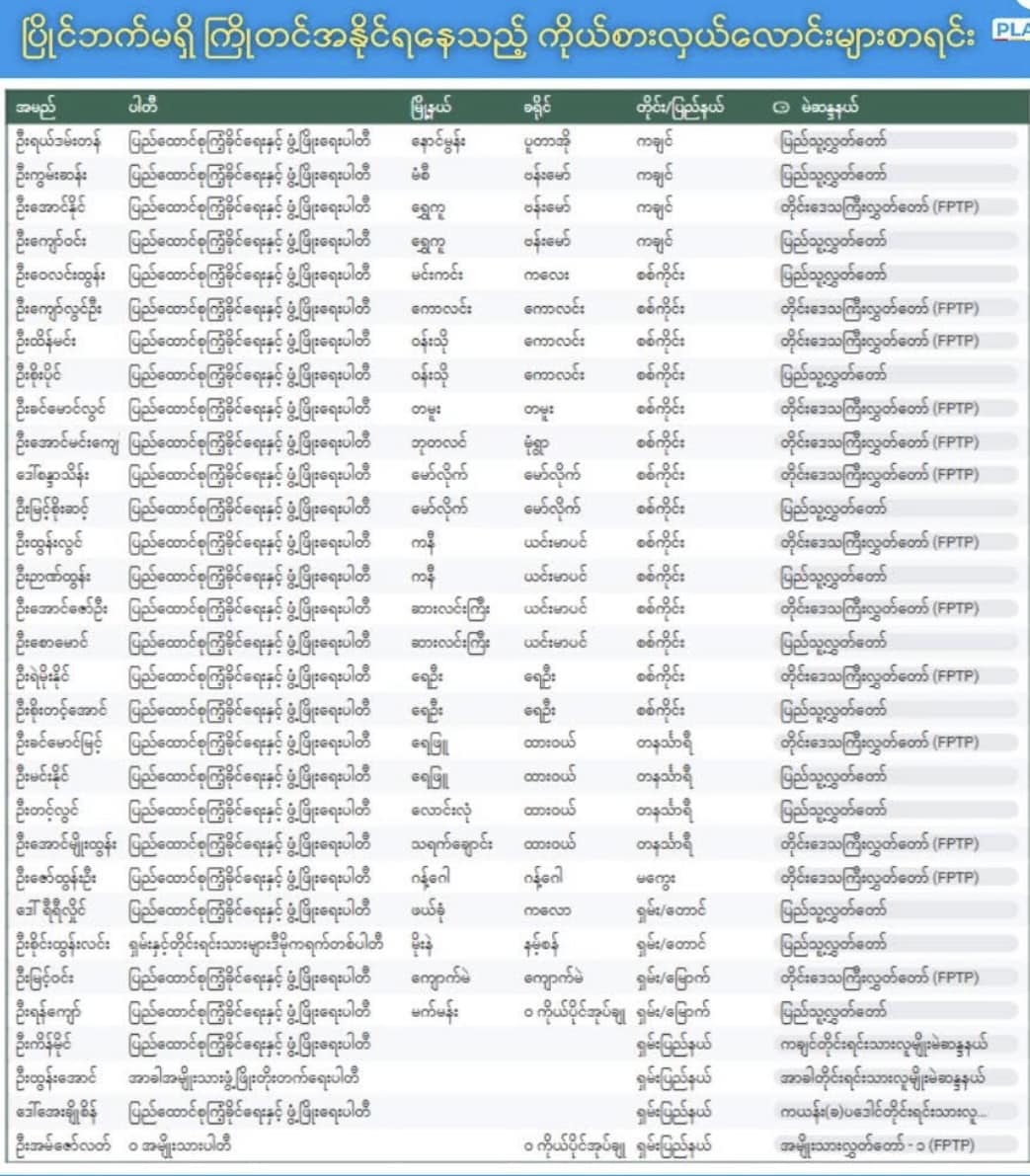
List of candidates who have won before the election
The USDP is also the party fielding the largest number of candidates, with over 1,000 contesting constituencies nationwide.
Currently, several senior lieutenant generals from the military are expected to compete as USDP candidates in the upcoming election.
Sources indicate that within the USDP, differences in opinion may arise between the party’s long-standing members and new entrants from the military.
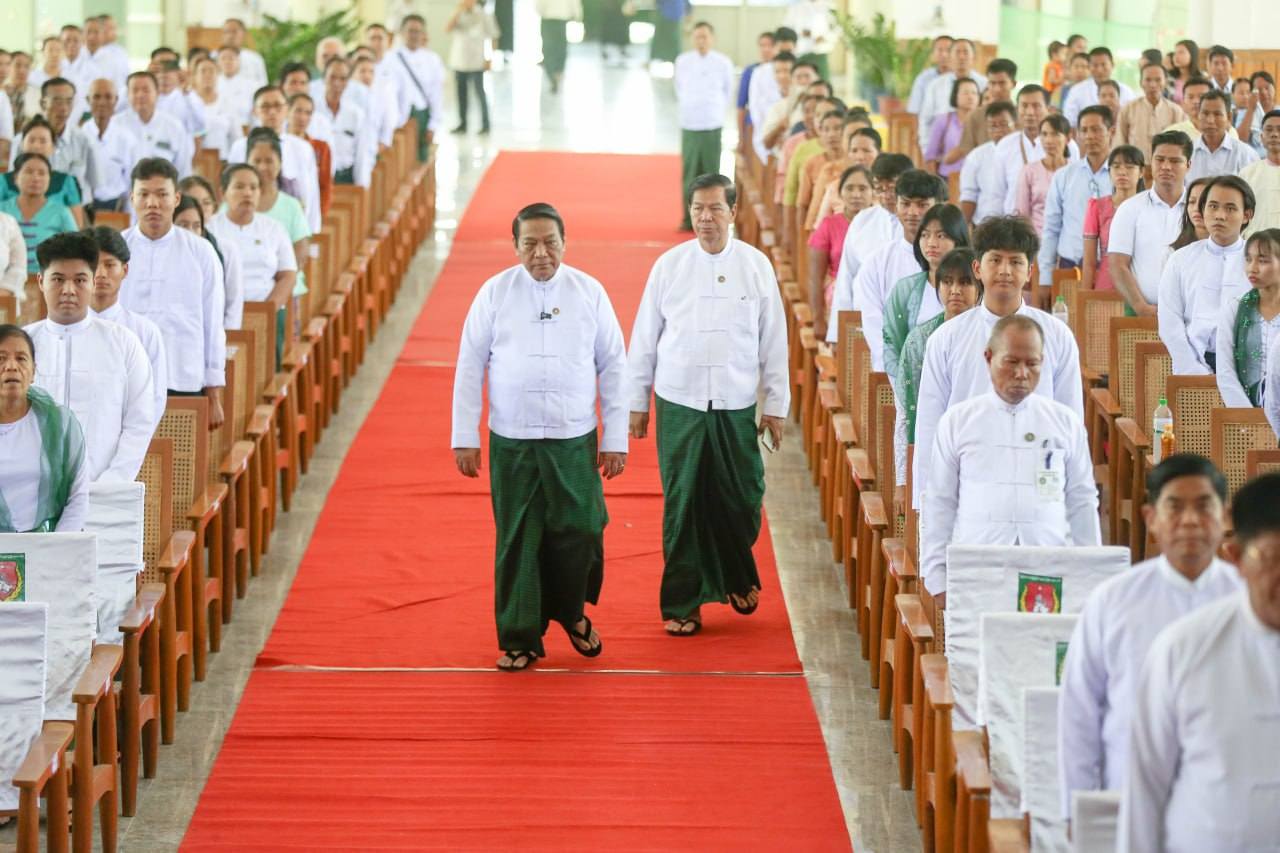
USDP party members seen
Dr. Hla Kyaw Zaw, a China-Myanmar affairs analyst, told CNI News:
“They’re basically playing their own game. Anyone with real potential has been blocked out—it’s a clear situation. The USDP just wants to win the majority of votes for itself and doesn’t intend to share power. Think about it—figures like Daw Thet Thet Khine could have contributed something for the people, but even such individuals are not given a chance. The party wants to keep everything within itself. There will likely be growing differences between the old USDP members and the new military-linked entrants. The generals joining the party may see it as an opportunity, but I think it could actually pose more danger for them. Conflicts and divisions are bound to emerge,” she said.
Although 57 parties have registered to contest in the election, the NLD and other credible opposition parties are not participating, leading many to predict that the USDP will win most of the constituencies.

- By CNI
- Category: English Section
- Hits: 641
CNI News
8 November 2025
The Chairman of the Pa-O National Liberation Organization (PNLO-NCA/S), Colonel Khun Okkar, told CNI News that the KIA is not a group that will disrupt the election.
In a speech on the occasion of the 65th Founding Anniversary of the Kachin Independence Organization (KIO) on October 25, 2025, General N'Ban La said that the way to beautifully end the battles and military situation is through political discussion and consultation.
He also noted that the upcoming election would see two opposing groups emerge—those who support it and those who oppose it—which could make discussion difficult and prolong the internal conflict.
Colonel Khun Okkar's View:
Because some Kachin political parties will participate in the upcoming election, the KIO/KIA will never oppose its own people. Therefore, it is unlikely to be a group that will disrupt the election, said Colonel Khun Okkar.
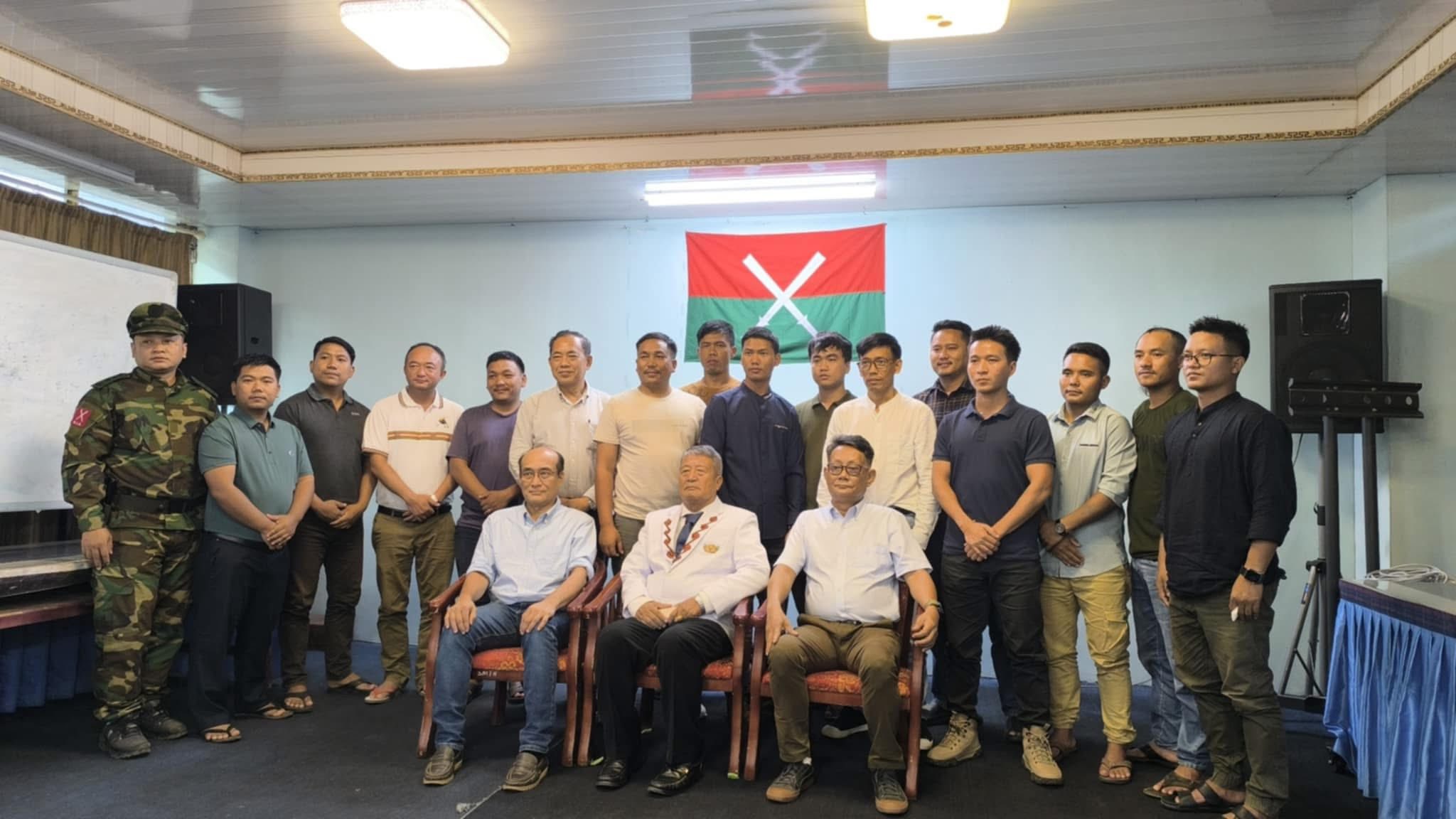
Caption: The NUG and the Chin Brotherhood
Colonel Khun Okkar stated to CNI News, "There are Kachin political parties. About two or three parties. Just as there is a Lisu party, there is a party led by Tuja from the Kachin State side. Since there are such parties, if the KIO says it opposes the election, it would have to oppose the political parties led by its former KIO members. They will never oppose each other. That is clear. The Kachin political parties running in the election can freely participate. Disrupting the election would be like disrupting the rights and political opportunities of the Kachin political parties. The KIO will not do that. However, other armed groups and Spring Revolution groups are demanding that the election must be disrupted, which we see as interference in other people's national affairs. That is why the KIO is not an organization that will disrupt the election. But I also do not think he will allow other forces to disrupt the election within KIO territory."
Military and political observers are speculating that the Kachin Independence Army (KIA) and the Myanmar Tatmadaw (military) may meet in November or December, before Phase 1 of the election scheduled for December 28, 2025.
KIO/KIA Chairman General N'Ban La stated on October 25, 2025, that the KIO is continuously contemplating and seeking solutions for peace for the entire country and all ethnic organizations during this political transition.
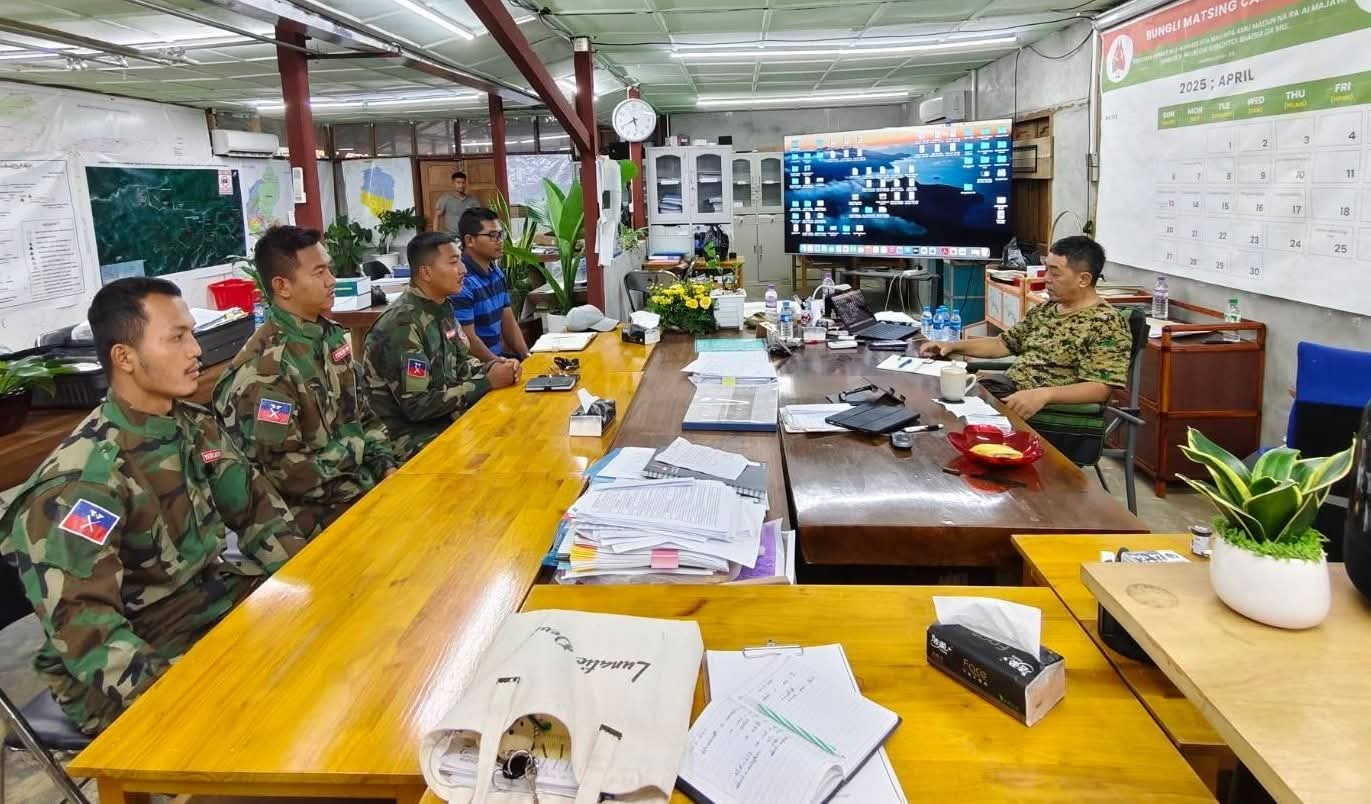
Caption: While the Yaw Army and KIA leader Lt-Gen Gun Maw were meeting in Laiza
Sai Htay Aung, Chairman of the Tai Leng(Shanni) Nationalities Development Party (TNDP), told CNI News that the KIO/KIA's failure to publicly oppose the election, despite having many revolutionary forces under its command, indicates political shrewdness and fear of being declared a terrorist organization, like the KNU.
He said, "Colonel Naw Bu also said in the past that there would be no election in KIO-controlled areas. His shrewdness is about this issue. There are many revolutionary forces on the KIA side. There are many in the Hpakant region now. There are over twenty thousand PDFs. We also hear about conflicts. Since the revolutionary forces have to rely on the KIA's supplies, if the KIA were to take a firm stand with the revolutionary forces and speak out decisively against the election, it is very afraid of being declared a terrorist organization like the KNU. Its strategy is to sit on the fence, supporting both sides. It will not speak out unilaterally to destroy the election by firmly standing with the revolutionary forces."
Since the KIO/KIA appears to be opening a path for dialogue and peace, military and political observers are questioning whether the revolutionary forces under its command share the same view as the KIO/KIA.
The KIA has proposed to the State Security and Peace Commission to hold a ceasefire meeting in Myitkyina, but the Tatmadaw prefers to meet in Mongla or Kengtung.
Therefore, while there is a plan for a meeting between the Myanmar Tatmadaw and the KIA, the meeting location has not yet been decided.

- By CNI
- Category: English Section
- Hits: 292
CNI News
8 November 2025
People's Party (PP) Chairman U Ko Ko Gyi says ASEAN must review its policies and positions to become a stronger organization.
The People's Party (PP) Chairman U Ko Ko Gyi told CNI News on November 5, 2025, that ASEAN needs to review its policies and positions to become a robust organization.
Major General Zaw Min Tun, Spokesperson for the National Defence and Security Council (NDSC), stated that all ASEAN members need to be mindful of the fundamental principle of non-interference in the internal affairs of other nations.
U Ko Ko Gyi views ASEAN as fundamentally divided into two parts and believes that for it to be a strong institution, the policies and positions established at its founding must be reviewed.
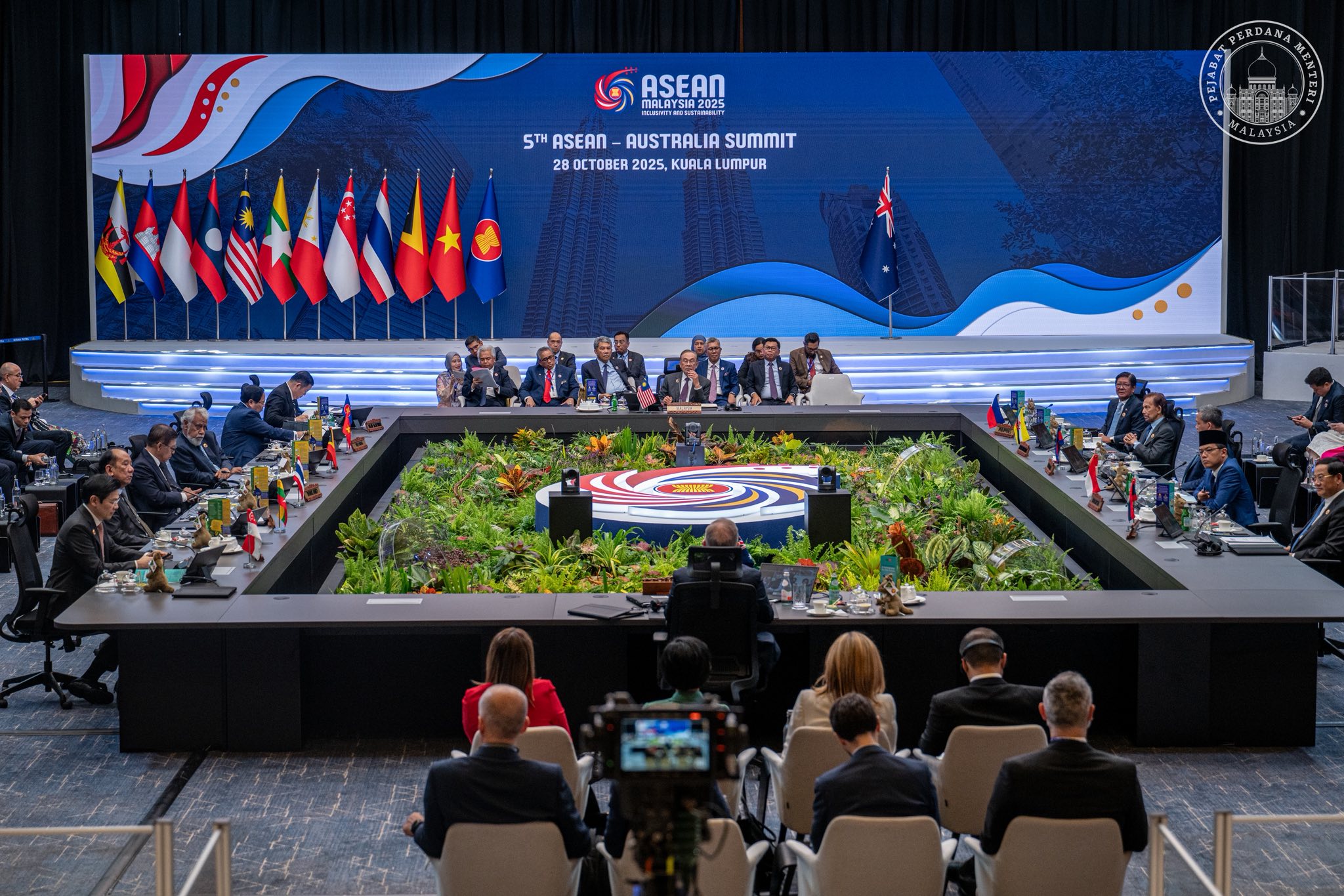
Caption: While an ASEAN meeting was being held
He stated, "Movement within the law—whether in a party or a region—if the law needs to be amended, everyone should gather and try to amend it. If it cannot be amended, you have to try to operate and decide within the existing framework. So, for ASEAN, when it was first established, the consensus was that an action can only be taken with the agreement of all; if one country objected, it could not be done. However, in practice, we see movements that are not organizational in nature. That is why I believe that ASEAN itself needs to re-examine and review itself."
Dr. Aye Maung, Chairman of the Arakan Front Party (AFP), told CNI News that ASEAN should not interfere in the internal affairs of a member state and that there is a discrepancy between ASEAN's founding objectives and its current actions.
He elaborated, "The original objectives of ASEAN's founding and the actions currently being encountered seem a little different. Interference, no matter how, means whether the government in Myanmar changes or not. That should be acknowledged. When an internal issue is handled as a domestic matter, for example, after the [2020 election], the SAC referred to itself as having emerged under its Constitution, according to the emergency provisions, which is a temporary period. So, it should be assessed within the framework of its emergency constitution. When this happens with a one-sided view, relationships weaken further. So, the issue of interfering in internal affairs also arises."
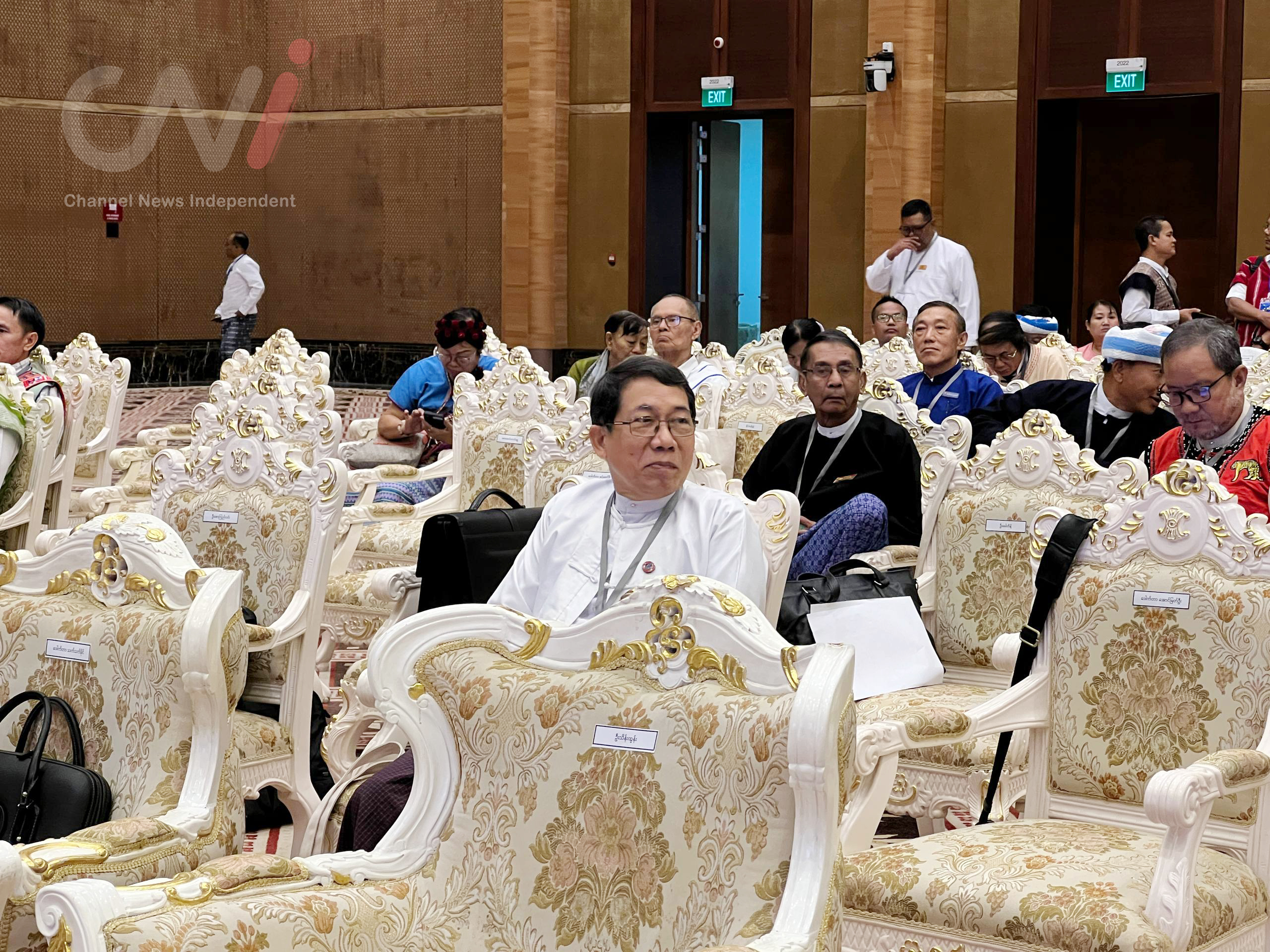
Caption: Dr. Aye Maung
Major General Zaw Min Tun also noted that if all ASEAN member states abide by the ASEAN Charter, the ASEAN Way, and the ASEAN Spirit that they have all agreed upon, it would lead to greater unity and benefit for the member states.
On February 1, 2021, the Myanmar military removed the NLD government, alleging it attempted to form a government without resolving disputes over the 2020 general election voter lists, and declared a state of emergency.
Subsequently, ASEAN intervened in the Myanmar issue and excluded Senior General Min Aung Hlaing and military leaders from ASEAN meetings.

- By CNI
- Category: English Section
- Hits: 389
CNI News
8 November 2025
The peace process and ceasefire efforts in Myanmar should be carried out as a national process rather than within the term of a particular government, said U Ko Ko Gyi, Chairman of the People’s Party (PP), to CNI News.
Observers of political and military affairs point out that peace cannot be achieved without addressing the fundamental causes of conflict—such as historical backgrounds, ideological differences, and political convictions.
They added that concepts such as maintaining a single national army, recognizing ethnic armed organizations, and granting self-administered regions are all security-based perspectives that cannot be achieved in a short period of time.
U Ko Ko Gyi emphasized that peace is not something that can be accomplished all at once, but rather a continuous national process.
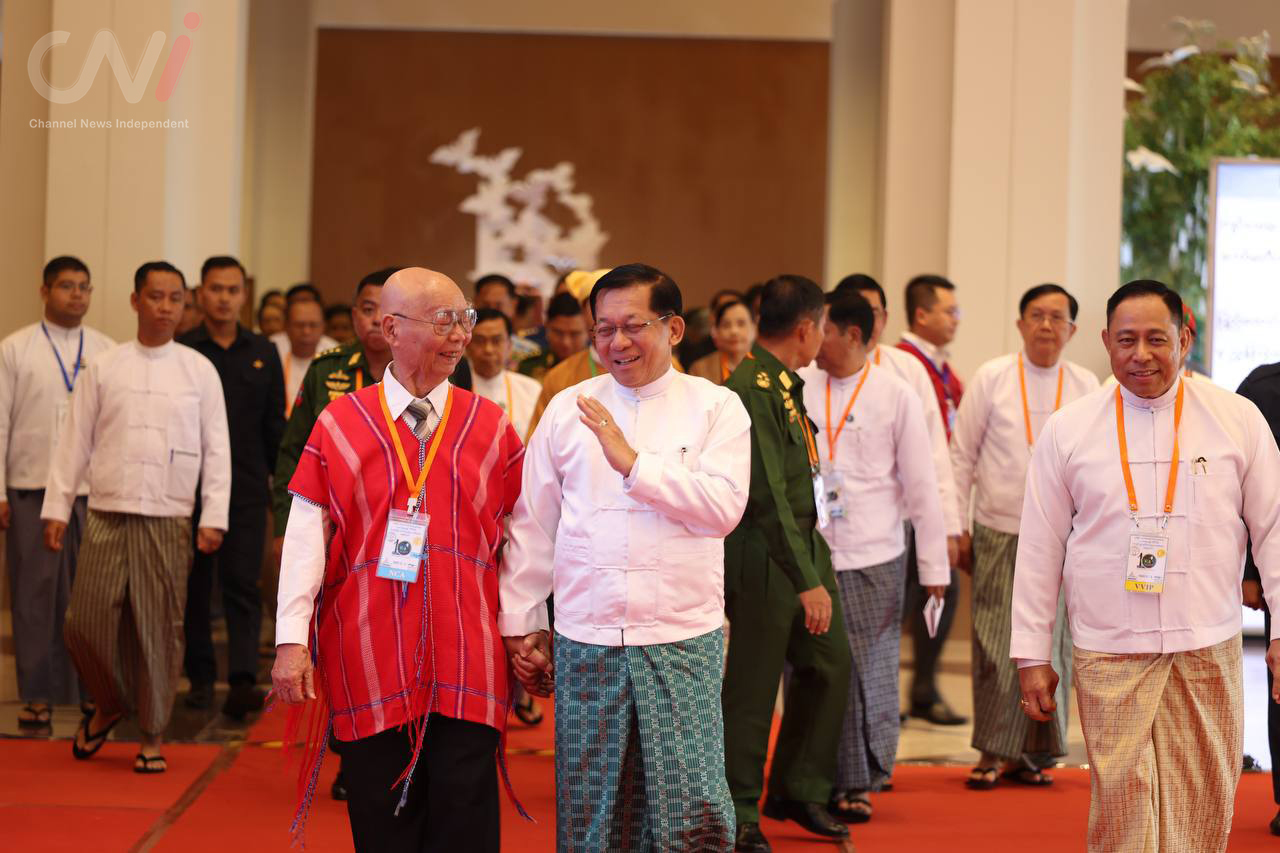
Meeting between leaders of armed groups and the Tatmadaw
“Successive governments have all worked toward peace. But peace is not something that can be completed in one sitting. We must gradually hold broader and more inclusive dialogues. It’s unrealistic for any side to expect to achieve all their goals at once. That’s why we should treat peace as an ongoing process—one that aims for better, more progressive outcomes step by step. It shouldn’t be tied to the term of a government. Peace should be approached and implemented as a national process,” he told CNI News.
Military and political analysts also note that there are various ideas, thoughts, and approaches involved in carrying out peace efforts.
U Ko Ko Gyi further said that political demands should be made formally within the political framework in order to produce sustainable political results.
“Even though there are clashes and gunfire, there must still be communication channels between both sides. Political demands and aspirations can be formally expressed within the political framework.Whe n armed groups seize towns, they may gain control temporarily, but if the other side regains strength, they will seize them back—it becomes a never-ending cycle. That’s why we need to ensure that issues like equality for ethnic nationalities, federalism, separation of powers, and resource sharing are addressed and institutionalized through constitutional reform. Only then can we say the results are legitimate and lasting. Therefore, we need to work toward stable political outcomes,” he explained.
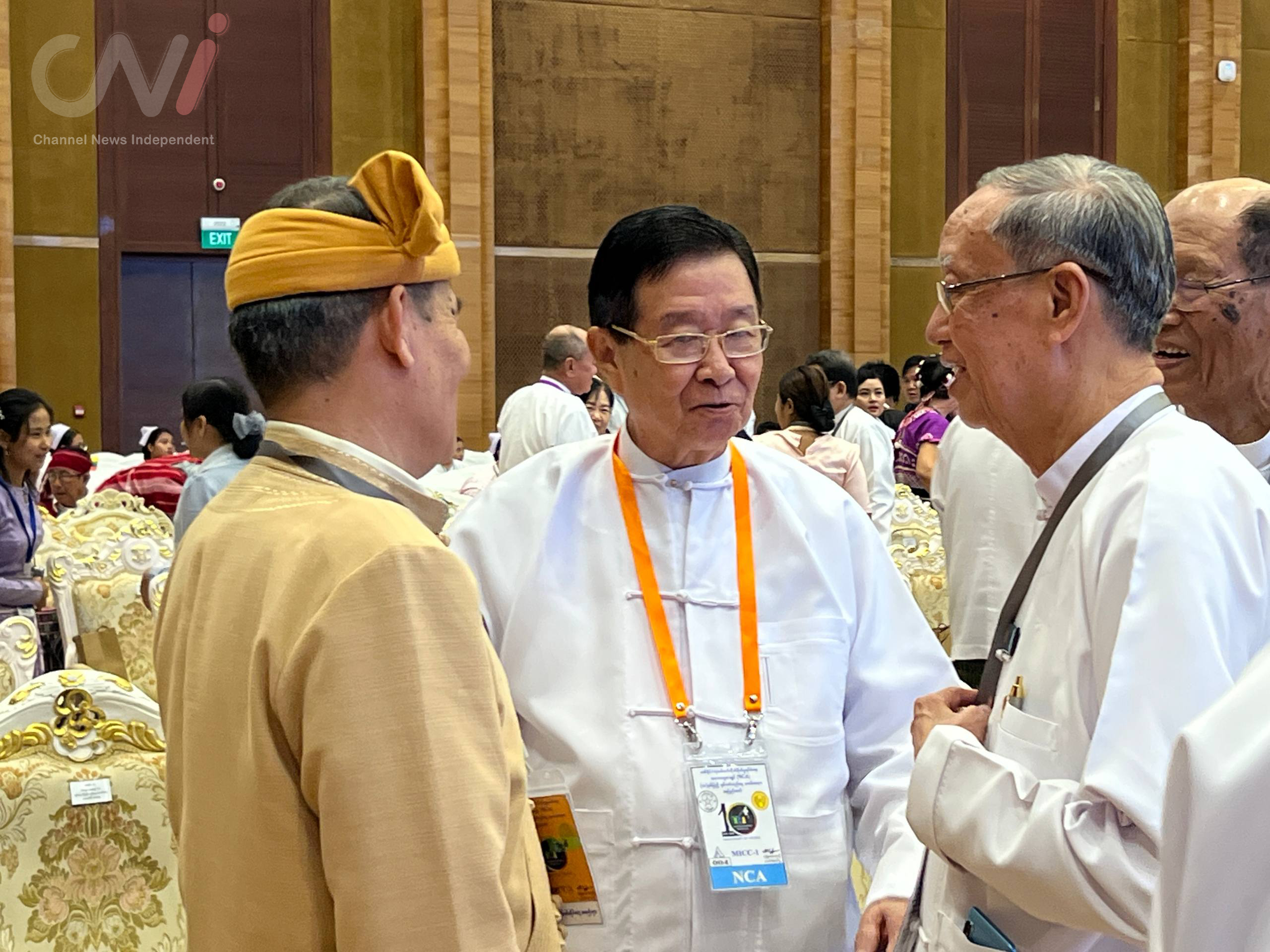
U Aung Min (then Chairman of MPC under President Thein Sein) meeting with Colonel Sai Ngin from the RCSS
In Myanmar, whenever a new government takes office, the people, policies, and organizations involved in the peace process tend to change as well.
As a result, the structures and trust built by previous governments often collapse, leading to stagnation in the peace process.
Currently, fierce fighting continues between the Myanmar military and various ethnic armed groups, while the peace process remains stalled and far from realization.

- By CNI
- Category: English Section
- Hits: 422
CNI News
7 November 2025
Political analysts point out that winning an election without any competition feels unusual, and a candidate is only considered dignified if they win after facing rivals.
Although Myanmar's Election Phase (1) is scheduled for December 28, 2025, some political party candidates are winning seats without rival candidates because the constituencies where the elections will be held lack security guarantees.
Among these candidates, the Union Solidarity and Development Party (USDP) has 28 members, while the Wa National Party, Akha National Development Party, and Shan and Nationalities Democratic Party (SNDP) each have 1 member winning uncontested.
The areas where they have won are constituencies in Kachin State, Sagaing Region, Magway Region, Tanintharyi Region, and Shan State.
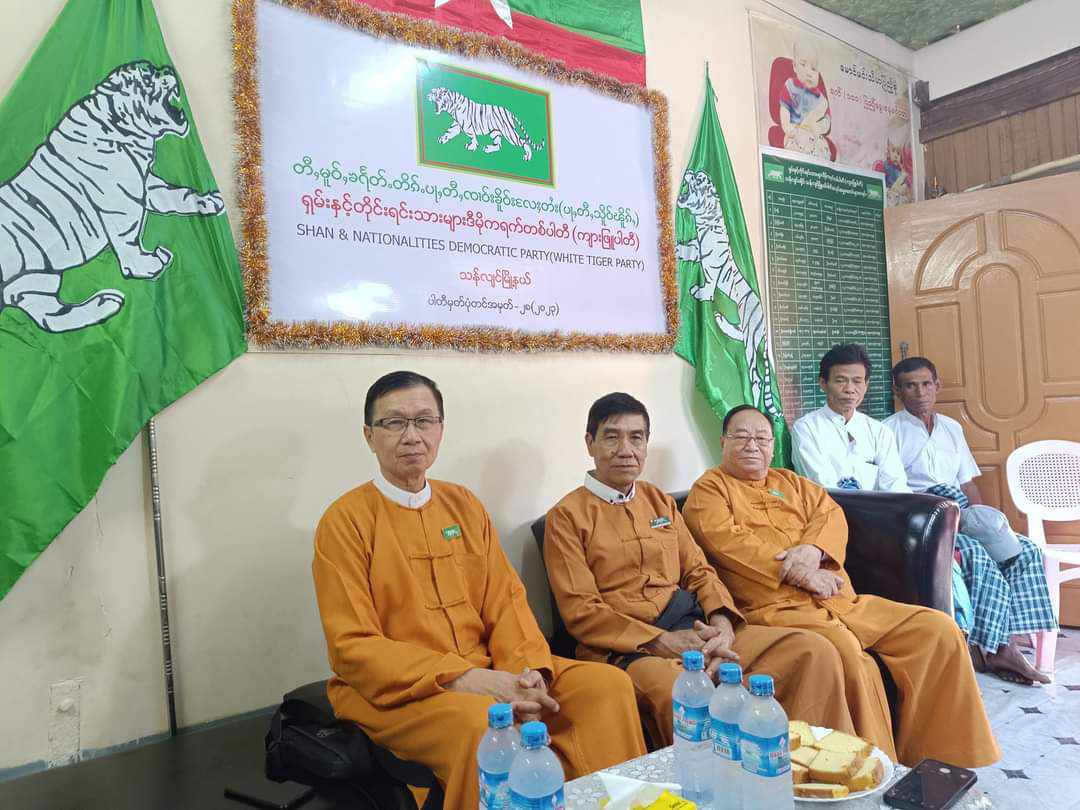
The Shan and Nationalities Democratic Party
Political analyst U Htet Aung Kyaw told CNI News that winning a thoroughly contested election is better, and becoming a representative by running alone and crossing the finish line without a competitor is strange.
He said, "The main thing is that since the other parties couldn't compete in 28 places, there's not much that can be done. It's difficult for other parties to enter these areas. Some try to prepare to contest in those areas, but they face pressure. We hear about those kinds of situations. It doesn't look good when a single candidate runs and wins without the need for a choice, but one thing is that these areas are currently very difficult for other parties to operate in; it's quite hard to enter. Whatever the case, winning a thoroughly contested election is better. It's also strange for a representative who runs alone and wins because there are no rivals. Winning without competition itself is strange. Whatever it is, how many votes you win is a matter of dignity for a candidate. That is better."
The townships where only USDP candidates will be elected for the Pyithu Hluttaw (Lower House) include Naungmon, Mansi, and Shwegu in Kachin State; and Monywa, Wuntho, Mawlaik, Kani, Salin, and Ye-U in Sagaing Region. Additionally, Yebyu and Launglon in Tanintharyi Region, and Matman and Pekhon in Shan State are included.
For the Region/State Hluttaws, the USDP has won 8 seats in Sagaing Region from townships including Kawlin, Wuntho, Taze, Budalin, Mawlaik, Kani, Salin, and Ye-U.
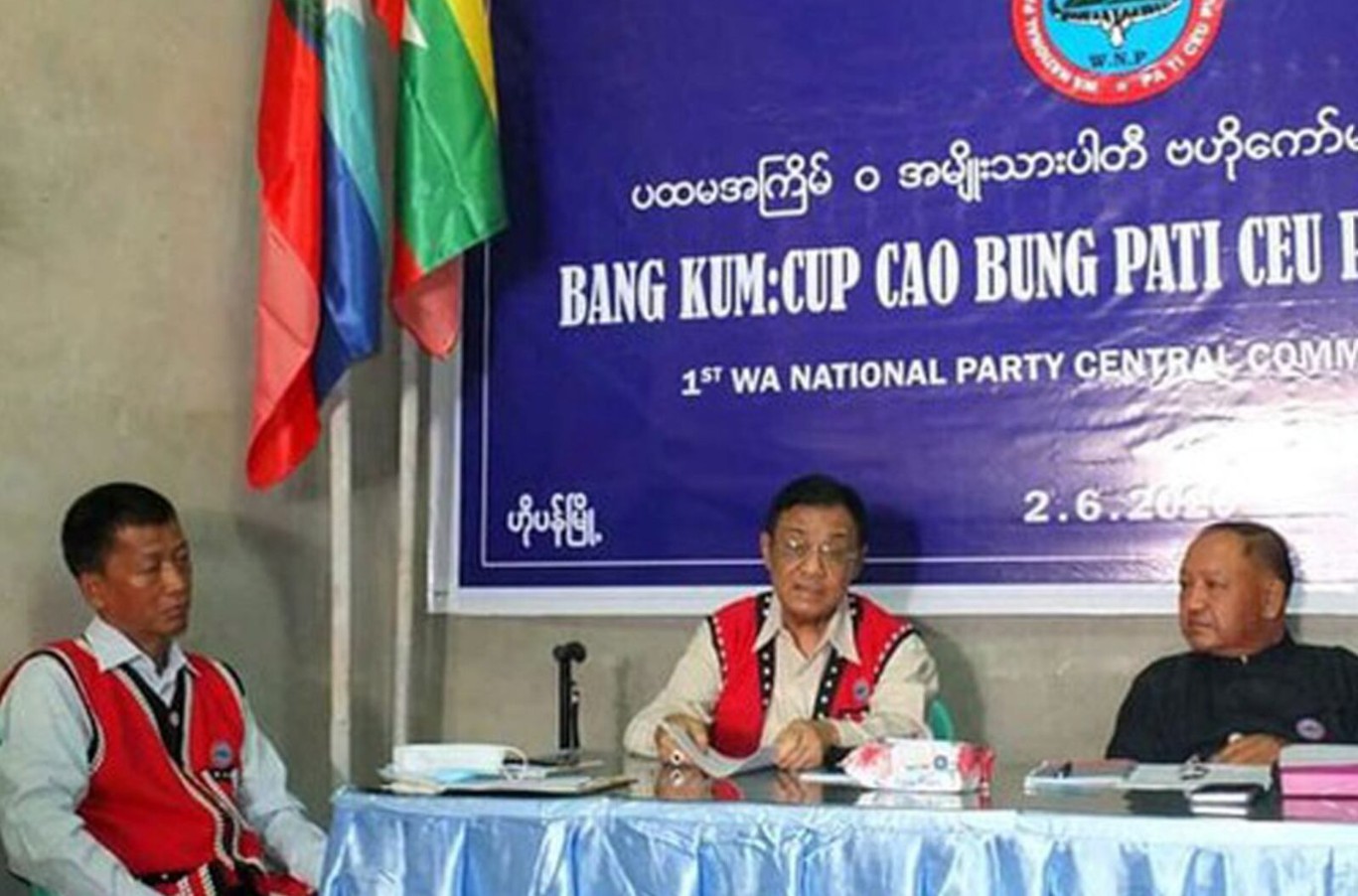
The Wa National Party
U Sai Htay Aung, Chairman of the Tai-Leng (Shanni) Nationalities Development Party (TNDP), told CNI News that since only one candidate is nominated in some constituencies, according to the constitution, if there is no rival, that candidate will win, and there should be no disadvantage.
He said, "That is according to the constitution. If there is no one competing, they will win. I believe there won't be any disadvantage. For the Akha ethnic affairs, since we nominated only one person, there's no need to compete. He will become the minister. When the commission announces the election results after everything is completed, he won't need to compete. The same goes for one person from the 'Wa' area. He is also nominated alone for the Amyotha Hluttaw (Upper House) and doesn't need to compete. Since this is carried out according to the constitution, I don't see any disadvantage. The people who are trying to destroy the election will be threatening. They are threatening other election candidates as well. They are threatening everyone who participates in the election."
According to the Election Law, Chapter (9), Section 41 (a), if there is only one candidate in a constituency, the election does not need to be held, and that candidate shall be declared the winner.
The parties with the highest number of candidates nominated for the election are the USDP, followed by the National Unity Party (NUP/Ta Sa Nya), then the People's Pioneer Party (PPP), the People's Party, and the Shan and Nationalities Democratic Party (SNDP).

- By CNI
- Category: English Section
- Hits: 473
CNI News
1 November 2025
Political analyst Dr. Aung Myo told CNI News Agency that a Military Service Exemption Tax Bill has been drafted and submitted to the relevant authorities for people in Myanmar who do not wish to serve in the military for various reasons.
The People's Military Service Law was enacted on February 10, 2024, with the aim of ensuring national defense and security duties, and currently, the 17th batch of public military service training is underway.
Dr. Aung Myo, a political analyst, told CNI News Agency that a draft law titled the "Exemption Tax from Serving Public Military Service" has already been prepared, and if the State approves this bill, it will be able to salvage the current situation.
He said "It's my idea. I have drafted a bill called the 'Military service exemption tax,' which is an exemption tax from serving in the public military service. I wrote it and asked for assistance from Captain Khin Maung Sint of the Veterans' Organization to submit the veteran's sentiment to the State. However, the law has not been enacted yet. If it is approved, and people who do not want to serve in the military for various reasons can gain exemption by paying a tax, then the young people, skilled workers, and professionals who have left the country will return. When they return, the country's economy will improve, and the population will increase. Essentially, we need to release that law as a political exit strategy and maintain control."
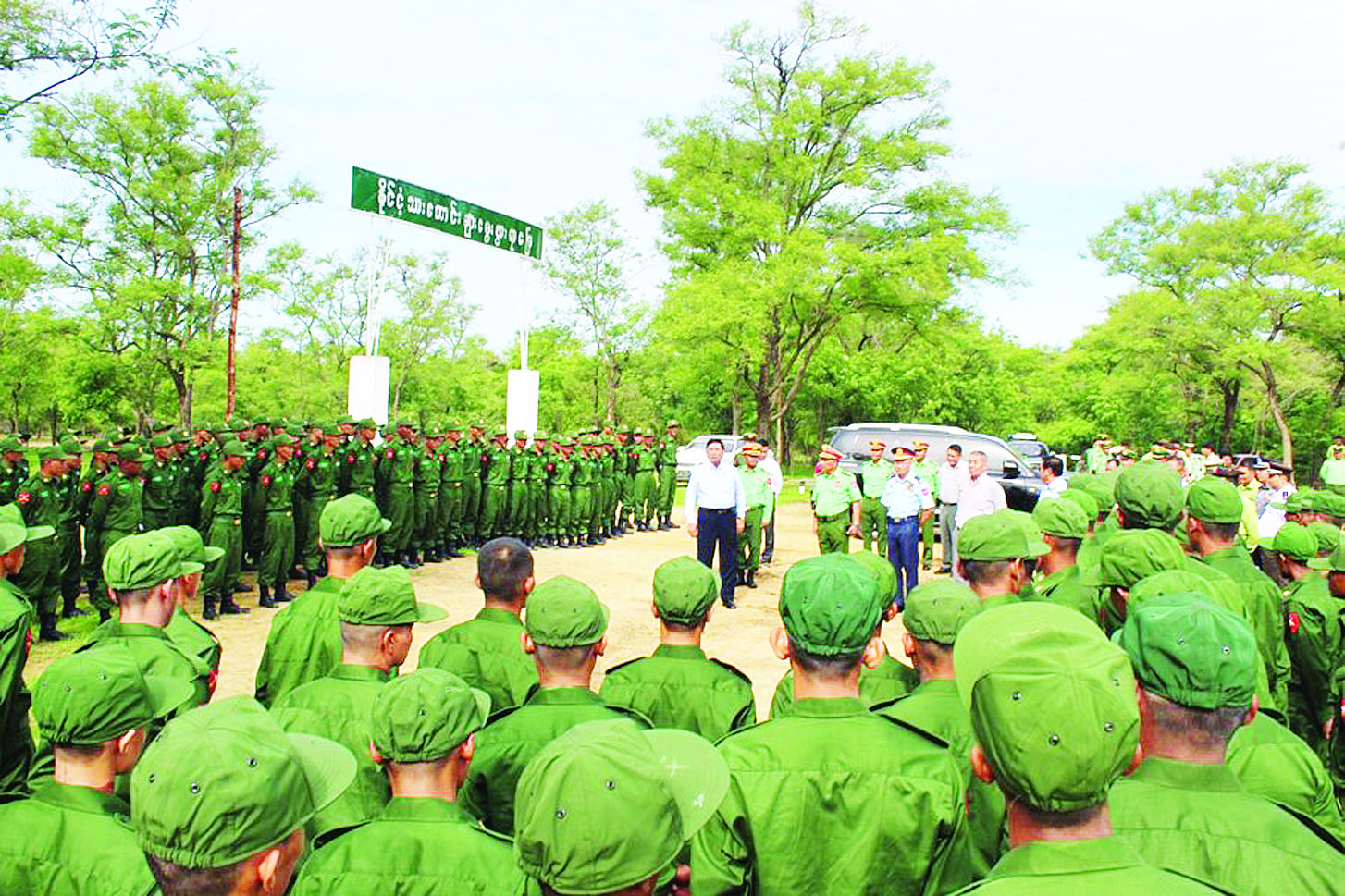
Military and political observers point out that due to the Military Service Law in Myanmar, many young people are leaving the country, and as a result of being called up for military service, the working-age youth population is decreasing.
Furthermore, military and political observers point out that along with the population decrease, the country is facing conditions such as labor shortages, slowing production, and the dangers associated with a declining population.
Currently, intense fighting is occurring between the Myanmar Armed Forces and armed groups, leading both sides to intensify efforts to call up or arrest young people for military service.
Consequently, political parties and political analysts are attempting various methods to stop the recruitment efforts of the armed organizations.

- By CNI
- Category: English Section
- Hits: 364
CNI News
1 November 2025
The hopes of ethnic minorities in Myanmar have yet to be realized, along with the armed conflicts that have persisted since the country gained independence, said U Ko Ko Gyi, Chairman of the People's Party (PP), to CNI News Agency.
Non-Bamar ethnic groups have been waging armed resistance, demanding self-determination and self-administration, equal rights for ethnic minorities, the right to determine their own destiny, the establishment of a federal union, and the flourishing of a democratic system.
U Ko Ko Gyi, Chairman of the People's Party (PP), told CNI News Agency that continuing with the armed approach only leads to the suffering of unarmed civilians and the casualties and destruction of armed groups, with no political outcome.
He said, "The armed conflict has emerged alongside independence, and until now, the hopes that ethnic minorities hold have not been realized. In reality, the people have suffered death, displacement, flight, and hiding due to the conflict for nearly 80 years. Therefore, continuing with the armed approach only causes suffering to the unarmed civilians. Other than the armed groups being destroyed and suffering casualties, I see no political outcome."
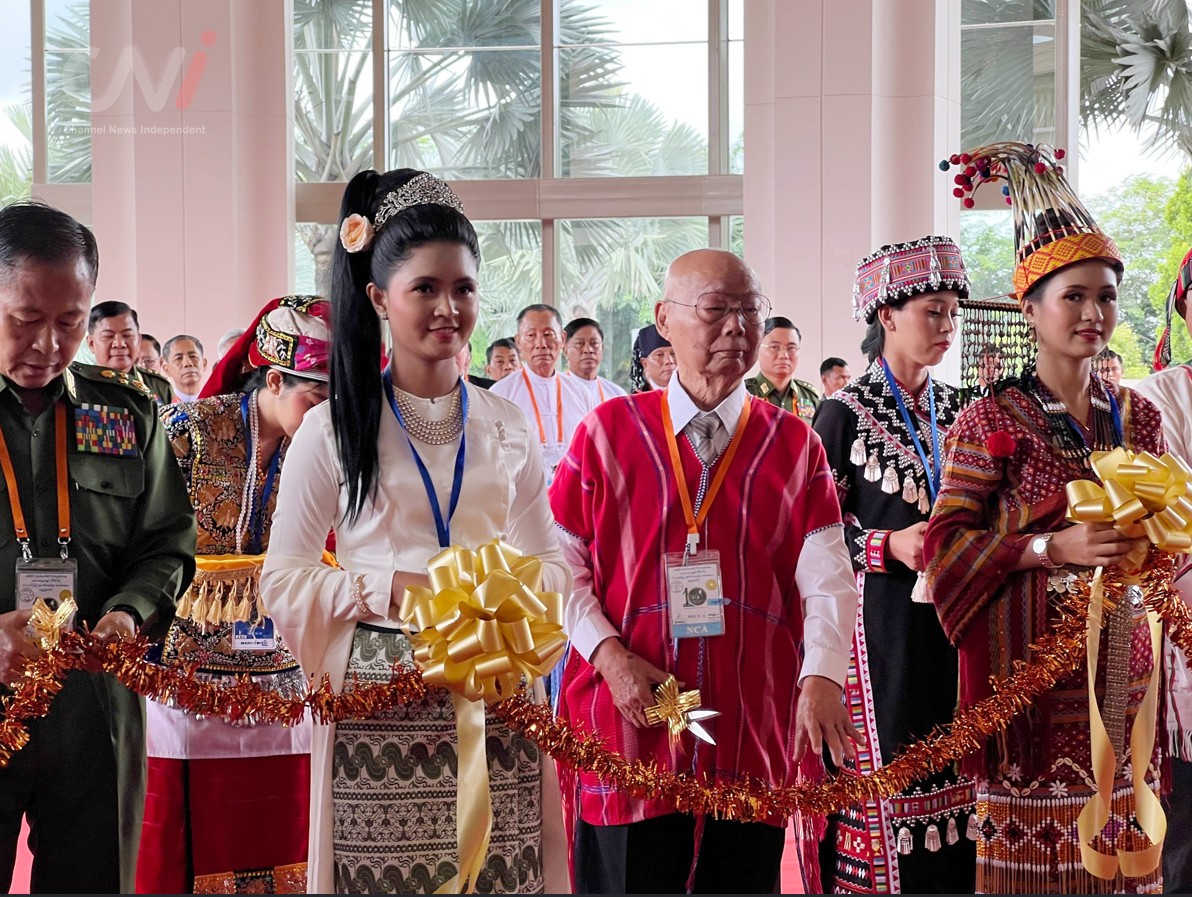
While seeing a leader of the Tatmadaw and ethnic minorities
Military and political analysts point out that ethnic groups are federalists and that federalism does not mean secession from the Union. They stress that self-determination and self-administration are essential, and therefore, Section 261, concerning the appointment of the Chief Minister, is a provision that must be amended.
The peace of Myanmar is not solely the concern of the armed groups' role, but also involves the roles of neighboring countries, stated U Ko Ko Gyi, Chairman of the People's Party (PP).

Ethnic armed groups and political parties
He explained, "We must strive for all domestic forces to achieve understanding and agreement regarding our armed conflict. However, at the same time, economic issues and interests related to the armed conflict have also become involved. With their involvement, the role of our neighboring countries also comes into play. Therefore, the peace of our country is not just the responsibility of the armed forces; we must work to ensure that the role of neighboring countries involved, including ASEAN, for example, and the role of regional countries are also integrated, leading to broad-based negotiations."
Despite the presence of many armed organizations in Myanmar, hundreds more armed groups emerged after the political landscape changed on February 1, 2021.
These armed organizations have differing demands and stances from one another.

- By CNI
- Category: English Section
- Hits: 451
CNI News
1 November 2025
The population within Myanmar has been gradually declining due to ongoing national instability, according to political analyst U Htet Aung Kyaw, who spoke to CNI News.
Commander-in-Chief Senior General Min Aung Hlaing stated on October 27, during the release ceremony of the 2024 Population and Housing Census, that the country’s population had slightly decreased for the first time in a decade.
U Htet Aung Kyaw explained that although Myanmar has a large number of young people who are capable of contributing productively to the nation, political instability and national unrest have caused many of them to migrate abroad for work or education—leading to a decrease in population.
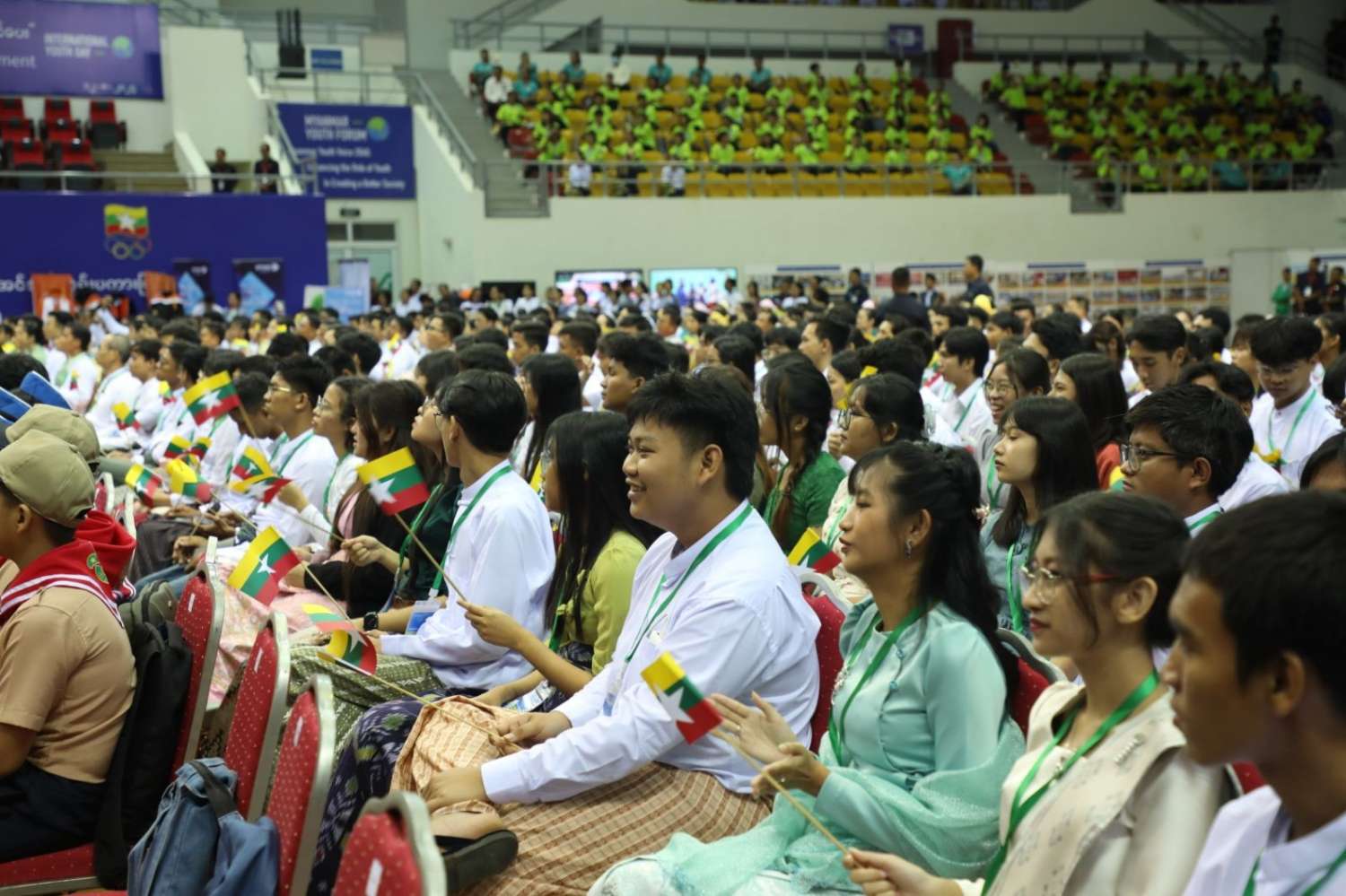
Youths seen at the census ceremony on October 27, 2025
He said: “When the country is at a stage where it could progress, political crises arise. As a result, young people who could have contributed to national development through industries are instead drawn into armed conflicts. We’ve lost a great number of our human resources that way. Moreover, because many people are worried about these situations and find it difficult to stay in the country, they go abroad for employment or education. That’s why the population has declined. During the very time when we should be harnessing our advantages, political turmoil has weakened us. It’s truly unfortunate for the nation.”
Although Myanmar is geopolitically significant, its population density remains low compared to neighboring countries. According to official data, this is the first population decline in ten years, Senior General Min Aung Hlaing said.
U Htet Aung Kyaw emphasized that national institutions must make collective efforts to bring back young people from abroad to contribute to the country’s growth and development.
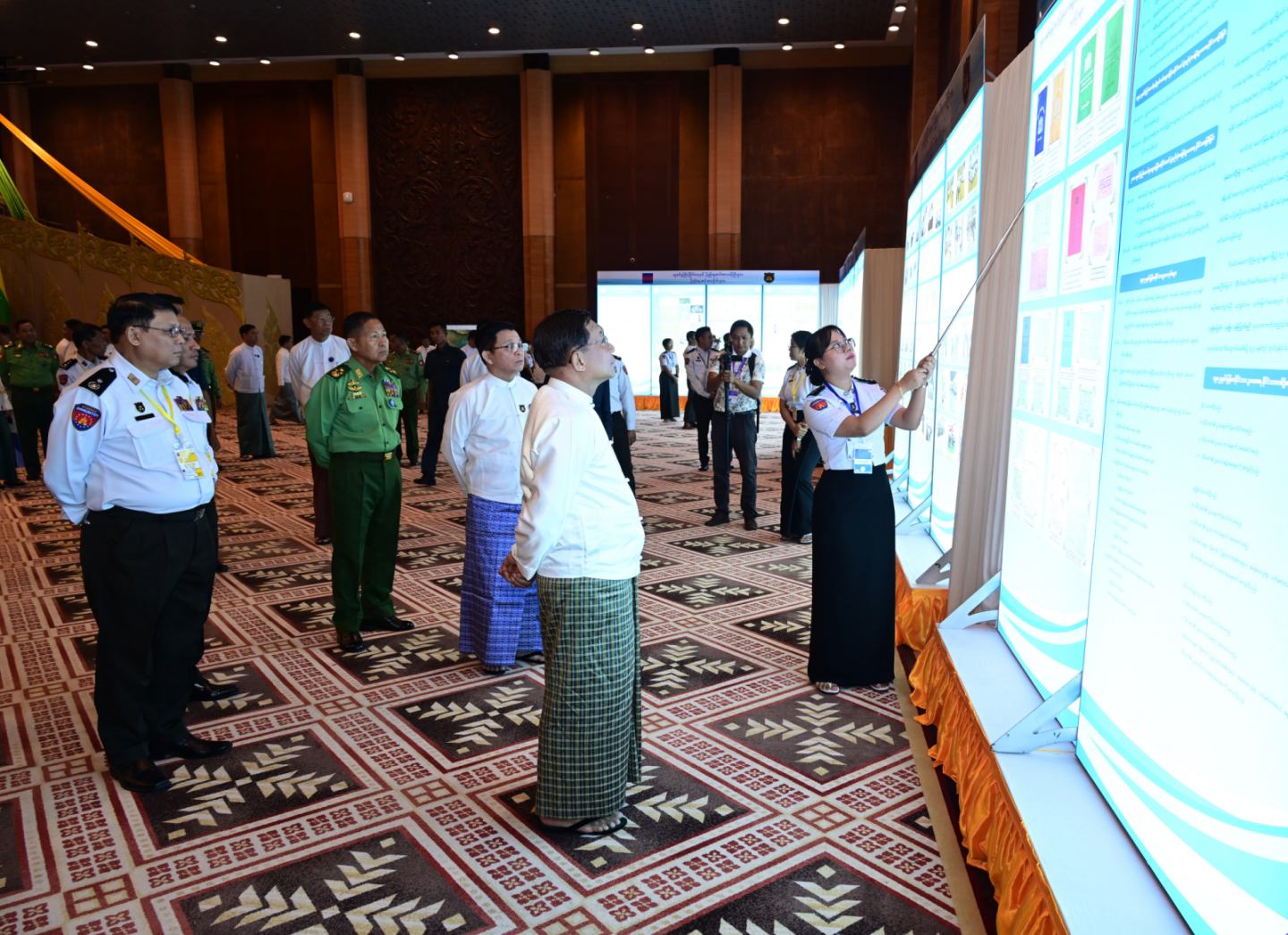
Senior General Min Aung Hlaing seen at the census ceremony on October 27, 2025.
“Those who leave the country don’t do so because they no longer love their homeland. It’s simply because they are facing many difficulties right now. When they go abroad, it’s not that they’re living idly—those who work are working hard, and those who study are pursuing their education. Therefore, if our young people gain experience and knowledge overseas, they could contribute significantly if we create opportunities for them to return and participate in national development. If we fail to do so, the situation will only worsen. Everyone needs to work together to make this possible.”, he added.
Senior General Min Aung Hlaing also warned that neglecting the youth could lead to a “Demographic Burden” and eventually to a “Demographic Disaster”—a severe population decline that could threaten national stability and peace.
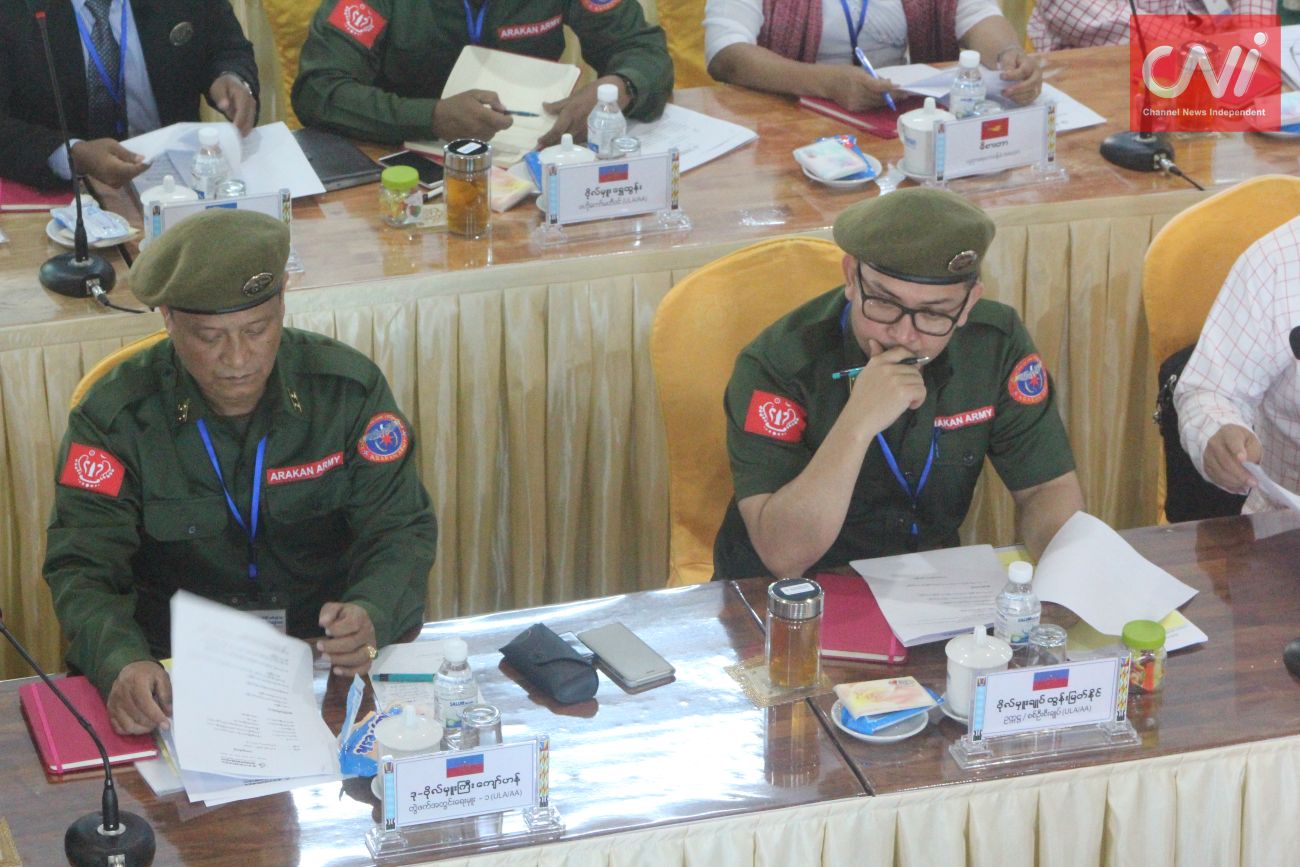
- By CNI
- Category: English Section
- Hits: 445
CNI News
31 October 2025
If the Arakan Army (AA) makes any mistakes or takes a wrong turn in its governance and territorial control efforts in northern Rakhine State, it will not be able to contain the growing strength of the Arakan Rohingya Salvation Army (ARSA), said U Thein Tun Oo, Executive Director of the Thayninga Institute for Strategic Studies, in an interview with CNI News.
He said, “How many people does ARSA actually have on the ground? What are their objectives? How far do they intend to go? When the AA gains control over territory, will it truly be able to govern effectively? These are issues that must be carefully analyzed based on available data. If the AA’s operations go in the wrong direction or if any mistakes occur, I don’t think they will be able to stop ARSA’s growing influence — that’s quite clear. When numerous conflicts occur on the ground but there is no well-structured mechanism to resolve them, major problems will inevitably follow. Especially, if things continue this way, even the AA itself could eventually face difficulties living and operating in those areas under increasingly tense conditions,” he said.
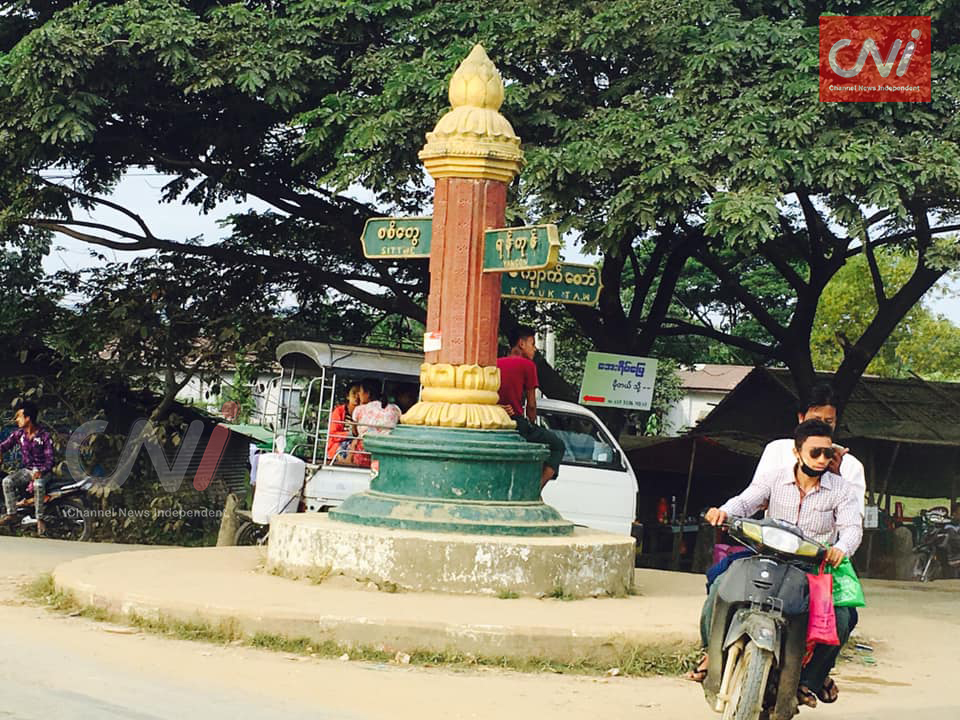
A junction in Rakhine State
Currently, in the northern Rakhine towns under AA control — Maungdaw, Buthidaung, and Rathedaung — attacks by the Muslim armed group ARSA have expanded significantly throughout 2025.
Between May and October 2025, around 50 civilians were killed in shootings and executions carried out by ARSA, according to local Rakhine authorities.
Military and political analysts report that ARSA’s activities in Rakhine State have increased compared to previous years and that the group primarily targets civilians.
According to U Myo Kyaw from the United Nationalities Alliance (UNA), ARSA’s growing strength could put serious pressure on Rakhine’s political landscape, as it draws support and resources from extremist sympathizers around the world.
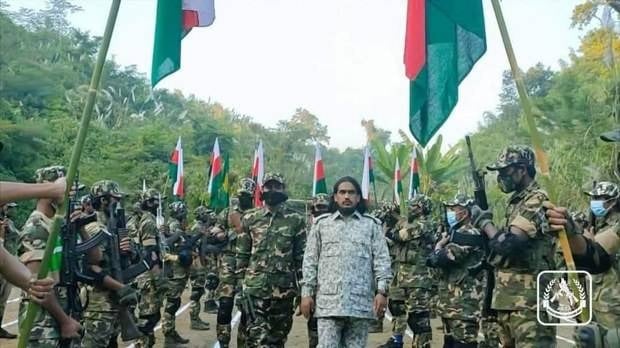
ARSA troops
He said, “The influence on Rakhine politics from groups like ARSA and ARSO doesn’t come solely from inside Myanmar. Behind them are global networks of extremist elements — people who are driven by religious extremism and territorial ambitions. If such forces become involved, it could create immense pressure on Rakhine’s politics. However, both the Rakhine people and the Muslims living in Rakhine must work together to present the true situation and historical background to the international community, especially to the United Nations and other world nations. The world is not unaware of what’s happening — but sometimes, due to geopolitical interests or strategic needs, powerful countries portray situations in a certain way. Small nations like ours must be careful not to become mere pawns in the global geopolitical chessboard,” he said.
Analysts also suggest that ARSA and ARSO have been receiving significant support from the Bangladesh Border Guard (BGB) and are infiltrating Rakhine’s Maungdaw District via the Naf River and Mayu Mountain Range routes.
At present, the AA has announced that it is conducting clearance operations against ARSA and ARSO forces in northern Rakhine State.



